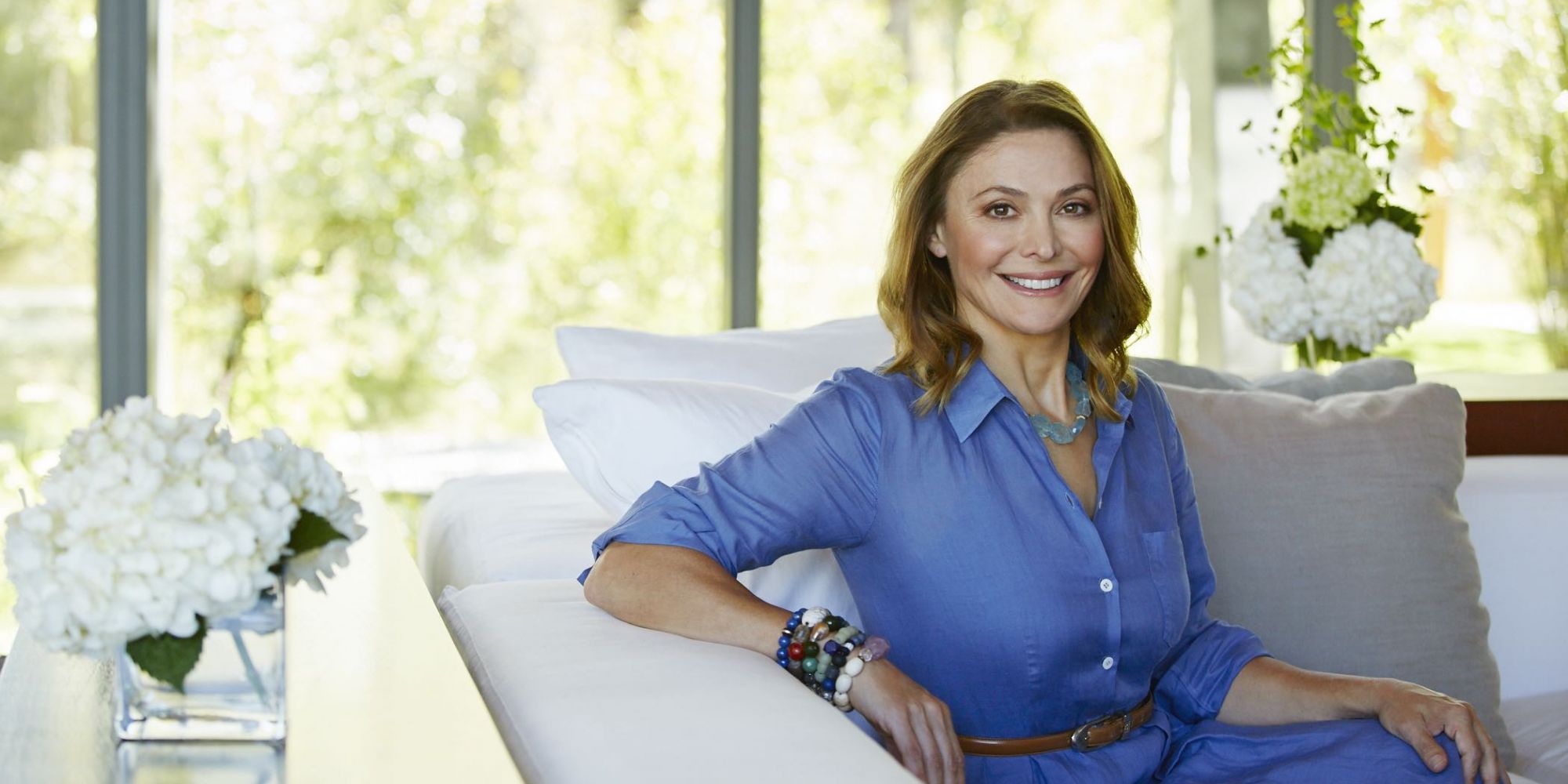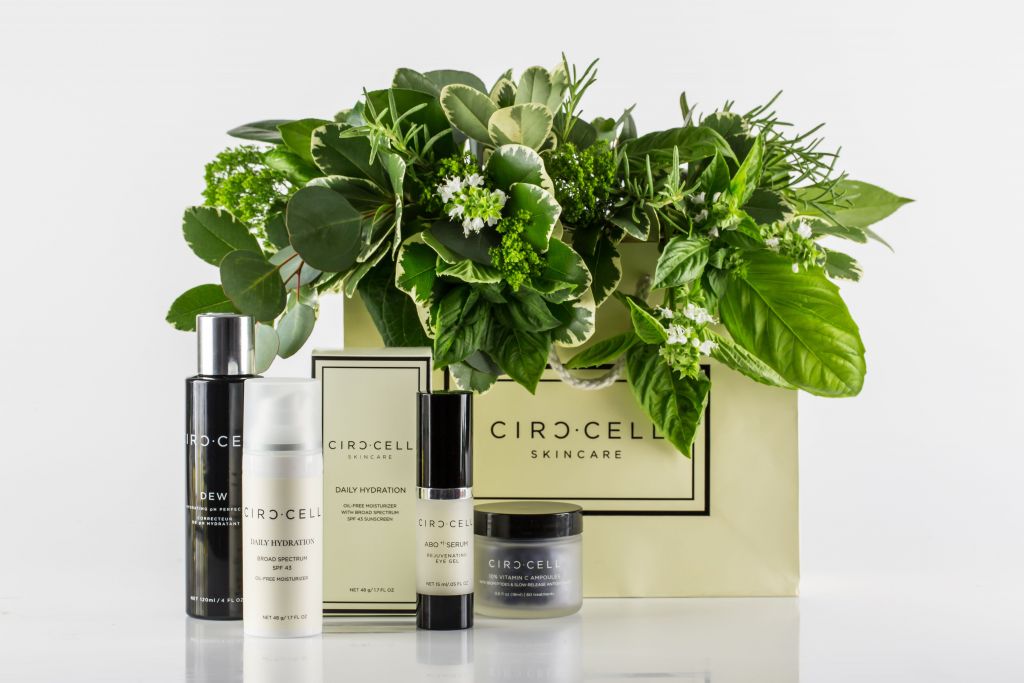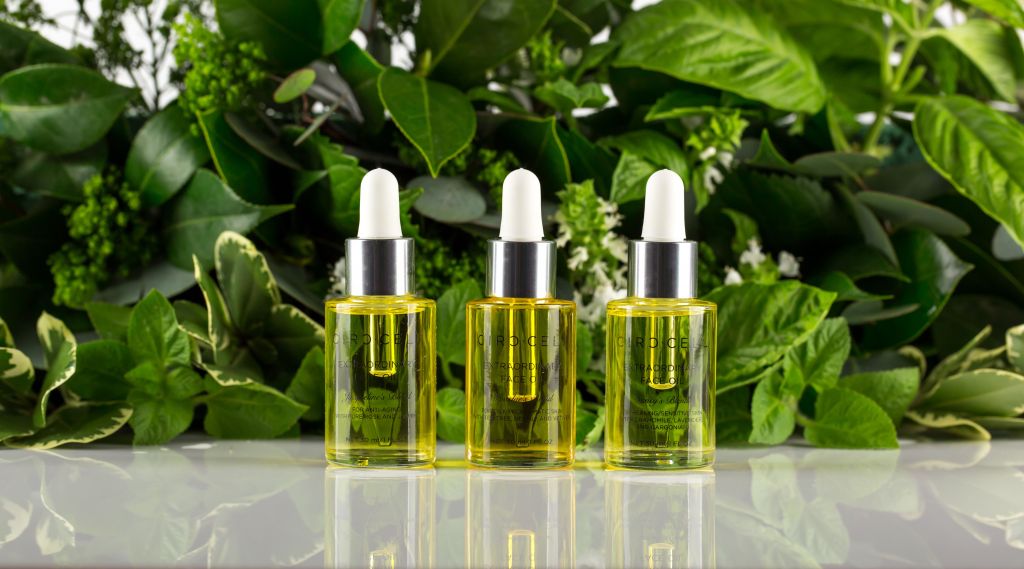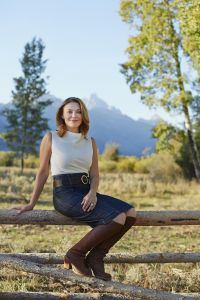
Maya Crothers’ Circuitous Path To Leading A Skincare Brand
CircCell founder Maya Crothers is a prime example of the benefits of following where life takes you. A former consultant who had left the workforce to concentrate on her family, Crothers didn’t envision leading a skincare brand, but a connection to a local aesthetician in her adopted hometown of Jackson Hole sparked a business idea, and CircCell was born. “In my 20s, I thought my path was corporate, and I thought I would do that until I retired. I never would have imagined retiring in my 30s. I never would have imagined moving to a place like Jackson Hole, and I never really thought of myself as an entrepreneur,” she says. Although CircCell wasn’t initially in her plans, it turns out Crothers has the doggedness required to brave the crowded beauty marketplace. “No matter what happens, you get up everyday and deal with it. Then, the next morning, you get up and deal with it,” she shares. Beauty Independent spoke with Crothers about what she’s had to deal with and gazing at moose from her desk.
What were you doing before you launched your brand?
My background is in engineering and business. My undergraduate degree is in mechanical engineering. I worked for Westinghouse in the power generation unit. It was totally unrelated to beauty. I worked in marketing, but it was a highly technical product, and they only hired engineers. One of my clients at the time was Enron. I did that for several years, then I went to the University of Pennsylvania to get my MBA. My focus there was finance. When I left business school, I went into consulting and worked for Bain & Co. We worked mostly for Fortune 500 companies, and I got a deep education in business. When I was pregnant with my second child, I retired. We left Dallas and moved to Jackson Hole full time. It’s a small resort town. Everybody knows everybody. Nobody locks their doors. There is no corporate community here. I thought I was done working, and I was going to raise my children.

How did CircCell begin?
I had no plans or intention of doing anything else professionally, but I met an aesthetician and got to know her really well. She had very interesting ideas about skin health and skincare, and she started asking me questions about business and how to start a company. She knew my background was in business. She would give me a treatments and the whole time we would talk about it. We decided to work on something together. It started off as a hobby. I didn’t expect it to go anywhere. I call myself an accidental entrepreneur.
How much money did it take to develop the brand?
It wasn’t a lot of money at first. We would write checks as we went along, and none of them were huge. At some point, we needed to have a bit of seed money in a back account. I think the original amount was $30,000. To start a business, that’s not really very much. Over the years, we have put in more. I am the primary investor and majority shareholder. We have outside investors. Some are angels that came in from the very beginning who are friends and family, and others are private equity guys, but they didn’t come in through private equity deals. They believed in the brand and put personal money into it.
You eventually assumed complete control over CircCell. When did that happen?
By 2012, the aesthetician was gone, and we had a SkinCeuticals veteran running the business, getting it off the ground and professionalizing it. In mid-2014, I took over the business entirely. I redid everything: the packaging and the messaging. We reformulated a bunch of the products. We discontinued a product. I started growing the line more aggressively. We have probably tripled in the line in the last 18 months. In my mind, it really feels like the company started in earnest in the middle of 2014 because that’s when I started to do things the way I wanted to do them.
“It’s really important to make sure your partnership agreements are written the way they’re supposed to even from the beginning to cover things like: Who has control, and how do you make decisions? Is that based on equity or dollars put in? What happens a lot on the indie side is that people start out with these little ideas, and they aren’t sure where they are going to go. So, you might not have the most professional legal documents in place. We made that mistake.”
What lesson did you learn from the business breakup with your original aesthetician partner?
It’s really important to make sure your partnership agreements are written the way they’re supposed to even from the beginning to cover things like: Who has control, and how do you make decisions? Is that based on equity or dollars put in? What happens a lot on the indie side is that people start out with these little ideas, and they aren’t sure where they are going to go. So, you might not have the most professional legal documents in place. We made that mistake.
Why did you want to revamp the line?
When you have partners, you do things as a team. You don’t necessarily do everything the way you want to do it. That’s not bad. It’s just the way it goes. But, when I took over, I was in the position of being able to do what I wanted. Originally the packaging was black, which I didn’t like. Also, I didn’t think the messaging was working. It wasn’t because it was bad or wasn’t true, it just wasn’t resonating. I refined it and made it my own. When we started off, there was an overemphasis on exfoliation in skincare broadly. We wanted to bring balance to skincare with different ingredients because you don’t need every product to do the same thing. Originally, it came across as an anti-exfoliation message, which really didn’t work because exfoliation is important. What we really meant is that there needs to be a balance. It took nine months to a year until I had the message refined to the point where I was comfortable with it.
What’s your hero product?
Probably our ABO face product. We have two ABO products: one of the face and one for the eye. They are among our oldest products and use similar technologies. They are based around a class of ingredients called perfluorocarbons, which were created to make synthetic blood. They are medical-grade gas carriers. They are super oxygenating. We also have ingredients in those products that have traditional skincare functions such as firming and helping with under-eye circles.

Who is your target customer?
Our customers are professional women who are serious about skincare and think about it intelligently. They ask about ingredients and not just because they want to make sure they aren’t using anything bad, but because they want to make sure the ingredients work. We like to say our products are hardworking and elegant because that’s what our customers are.
What is your distribution strategy?
We began as a professional brand and just started thinking about retail in 2016. Our widest distribution right now is through high-end spas and resorts. We are in the Four Seasons Chicago and Stein Eriksen Lodge Spa in Park City, Gina Mari Skincare in Los Angeles, and Joanna Czech in New York and Dallas. They really understand our philosophy. It’s so important to really partner with spas. What that means is working together and being fair with both sides making investments. When both sides have the same business values, it’s amazing how successful a partnership can be.
Pretend I’m a retailer. Give me the quick pitch on your brand.
Over the last few years, it seems like all the interesting things in skincare are in the natural/organic area and performance has taken a backseat. We are a brand that offers what the modern woman wants. She wants her skincare to be clean, to perform, to feel lovely and to fit into her busy lifestyle, and we provide all that.
“Earlier this year, we got a call from Amazon Professional Beauty. They wanted to carry CircCell. What really intrigued about a deal with them was shutting down unauthorized sellers. They said they would shut down the unauthorized sellers overnight, and they really did shut down all of the unauthorized sellers overnight. They are a very good partner.”
What is CircCell’s direct-to-consumer strategy?
It’s not the biggest part of our business, but we are focusing on it more and more. This year, we contracted with a growth hacking firm to put more emphasis on that area. If you are not looking at digital and thinking about it seriously, then you are going to be dead. Using a growth hacker is important for two reasons: of course, to drive direct sales that can be more lucrative on a per unit wholesale basis and for brand awareness. I don’t see us just as a direct-to-consumer company, but we want to increase direct-to-consumer sales dramatically, not just 10% or 20%. The goal for us more than that, though, is brand awareness.
Amazon, yes or no?
We are on Amazon. We never really considered Amazon as a channel to start. It was a bit of an irritation because we would occasionally do an Amazon search and find products from all these different sellers. I didn’t know who these people were or how they got the products. We received calls from people who’d purchase from these sellers and wanted to return the product. People get a bad impression of you because they bought a product and lord only knows what’s in it. Earlier this year, we got a call from Amazon Professional Beauty. They wanted to carry CircCell. What really intrigued me about a deal with them was shutting down unauthorized sellers. They said they would shut down the unauthorized sellers overnight, and they really did shut down all of the unauthorized sellers overnight. They are a very good partner.
What is your goal for retail revenue growth this year?
We hope to double every year at a minimum.
On the backend of the business, what are issues you’ve run across?
There was one period where we were working with a supplier who got into regulatory trouble. They filed something the wrong way. We made a decision in that instant that we weren’t going to work with them anymore. That was super stressful. At the same time, our manufacturer, who was a well-established large manufacturer and a great partner, announced they were going out of business. That was a nightmare. What happens in Chapter 11 or Chapter 7 is the authorities will come and lock the door, and nothing gets out. They were in the middle of manufacturing our bestselling SKUs, and I didn’t know if I was going to be able to get my product out of there. It would have taken nine months to a year to get those products back in inventory, and a company can’t live without its top SKUs. They did get everything for us, but it required a tremendous amount of logistics work and, while that was happening, I had to find a new manufacturer.

When you had to switch manufacturers, did you approach choosing a manufacturer differently?
The biggest thing I learned is that you have to have more than one. Now, we have more than one. If something happens to one, we have others that know us, and we have a history with. We know they can do things the way we like them.
At 50-years-old, are you a different entrepreneur than you would have been at 25-years-old?
Absolutely. At this stage in life, things are more stable. You are more secure as a person and financially. You have more knowledge and wisdom, and your pace of life doesn’t seem as frantic was it was in your 20s. You have experience to know that, no matter what happens, the sun is still going to shine tomorrow. You are a place in life where you just take things with a bit more ease, and that’s very helpful.
How did you end up in Jackson Hole?
We liked Jackson Hole and had been spending summers here. We had been building a summer house. The house was almost done, and we thought, “Why does it just have to be a summer house?” Not that we didn’t like Dallas, but we just loved the Jackson Hole lifestyle. So, we decided to live there permanently for a year. We liked it, so we sold our Dallas house and decided to live in Jackson Hole full time.
Is it difficult to run your business from Jackson Hole?
It can be difficult. We don’t have manufacturing facilities in Jackson Hole. We don’t have fulfillment facilities or a great PR firm. Now that we have so many partners in place, it’s easier. You really can run a company from a computer, and I’m traveling to New York, Los Angeles and Dallas all the time.
In Jackson Hole, what’s your work environment like?
I work from home, and there are windows all around me. From one set of windows, I have a view of the Grand, the highest point of the mountain range in Jackson Hole. From another, I look onto a wood grove. We have wildlife. I see moose. There’s a herd of elk that goes through our neighborhood. I am able to see the snow falling. It’s really peaceful.






